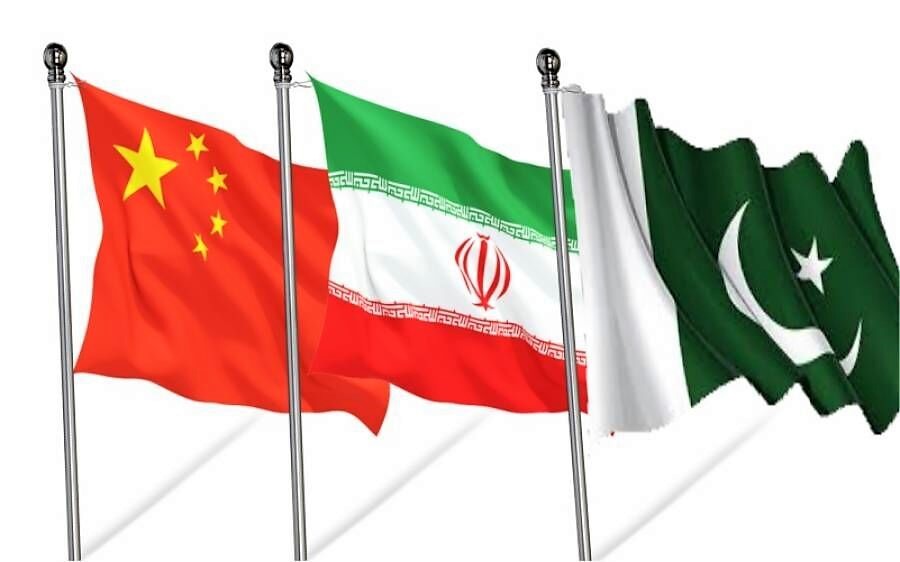

China, Iran and Pakistan hold regional security trilateral meet
A new alliance is in the formation in Asia.
China, Iran and Pakistan organised their first trilateral counter-terrorism conference in Beijing on Wednesday. The three nations, of which two are nuclear-armed, held discussions on the regional security situation and counter-terrorism.
A statement from Pakistani capital Islamabad said: “The delegations held detailed discussions on the regional security situation, particularly the threat of terrorism faced by the region”. For added momentum, the three nations have decided to institutionalise the trilateral consultations on counter-terrorism and security for regular future meetings.
The Pakistani foreign office statement, “… the threat of terrorism faced by the region…” could be an indirect reference to western neighbour Afghanistan, where the Taliban formed a government in August 2021 after the withdrawal of American troops. The Taliban’s storming back to power after two decades in the wilderness also brought back fears that radical ideologies and terrorism would surge.
The three partners share a common border with a landlocked Afghanistan.
The Voice of America (VoA) said that Pakistan’s south-western Balochistan province, that lies on the border with Iran, was a likely essential agenda item. It reported: “The natural resources-rich but impoverished region is central to a multibillion-dollar Chinese-funded program, the China-Pakistan Economic Corridor”.
VoA quoted Baqir Sajjad, a Pakistan fellow at the Wilson Center in Washington, as saying: “The establishment of a trilateral security mechanism between China, Pakistan and Iran reflects their shared concerns regarding security in Balochistan”.
All three nations, China, Pakistan and Iran are battling a heightened ethnic Baloch insurgency that rages on both sides of the Iran-Pakistan border. Various Baloch armed groups have been fighting Pakistan for over seven decades since the Pakistani Army marched into an independent Balochistan on 27 March 1948.
China got drawn into the ethnic conflict between the Baloch community and the Pakistani Army due to its mammoth infrastructure-corridor project CPEC which spans the entire length of Pakistan. The alienated Baloch community says that the CPEC is an exploitative project which is not creating jobs for the community.
The Baloch also say that China is sucking Baloch mineral resources like copper, gold and coal for the benefit of the Pakistani Punjab region and Beijing, leaving the Baloch people impoverished through the loot of their natural wealth.
Even as Baloch armed groups have been targeting Chinese nationals and its projects in Pakistan, local communities have staged mass protests against the China-built Gwadar Port on Pakistan’s south-west coast, close to the Iran border.
It is not known whether the three held discussions on the China-India border tensions and the China-Taiwan issues – a possible flashpoint between Washington and Beijing which has drawn the attention of the whole world.
New Zealand's Deputy Prime Minister and Foreign Minister Winston Peters has arrived Kathmandu on his…
The Indian Army and the Mongolian Armed Forces will commence the 17th edition of their…
Pandi Ram Mandavi, a renowned artist from Bastar, Chhattisgarh, was conferred the Padma Shri award…
Taiwan's Mainland Affairs Council (MAC) criticised China on Wednesday for organising two summits for Taiwanese…
The East Turkistan Government in Exile (ETGE) vehemently denounces Mr. Francesco Frangialli, the Honorary Secretary-General…
Chairman John Moolenaar and Ranking Member Raja Krishnamoorthi of the House Select Committee on the…